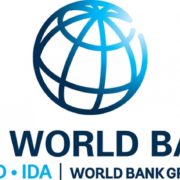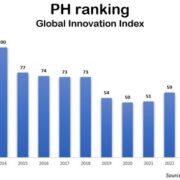Washington, D.C., January 14, 2019—The World Bank has renewed an insurance program to help the Philippines better respond to losses from climate and disaster risks. The renewal provides 25 provinces in the country with the Philippine peso equivalent of US$390 million in insurance against major typhoon and earthquake events. Coverage under the new policy became effective on December 19, 2018.
Under the program, the World Bank enters into an agreement with private reinsurers to provide coverage against disaster and severe weather impacts for national government agencies and 25 participating provinces. Insurance payouts are made when pre-defined parametric triggers are met. The Philippines Government Service Insurance System (GSIS) provides the parametric catastrophe insurance coverage. The insurance policy is designed to provide rapid liquidity in the face of disasters to the government, to enable rebuilding and recovery to commence.
The renewed policy nearly doubles the coverage under a 2017 policy, facilitated by the World Bank through a catastrophe swap, that provided the Philippine peso equivalent of US$206 million in insurance. The panel of risk takers, selected through a competitive bidding process, also doubled under the renewed policy. Risk takers were able to participate in the transaction either through a derivative contract or a retrocession agreement.
“This initiative demonstrates the Philippines’ strong commitment to continue investing in innovative financial solutions that will mitigate the impacts of major earthquakes and extreme climate and weather-related events,” said Mara K. Warwick, World Bank Country Director for Brunei, Malaysia, Philippines and Thailand. “The program complements the country’s overall strategy and efforts in ensuring resilience against natural disasters and climate change impacts.”
The World Bank is also supporting the Philippines in preparing a sovereign catastrophe bond to complement the existing insurance program by providing cover for more extreme events.
The Philippines is among the world’s most vulnerable countries to natural disasters. The country is expected to incur, on average, US$3.5 billion in asset losses each year due to typhoons and earthquakes.
George Richardson, World Bank Director for Capital Markets, said, “Today’s announcement marks another milestone in our partnership with the Philippines, and in our joint pursuit of leveraging capital market instruments to prevent the human and financial tolls of disasters. We look forward to deepening this partnership as we work together to harness innovative financial solutions to boost the country’s resilience against unforeseen events.”
Since 2008, the World Bank has issued, hedged, or facilitated over US$4.3 billion in transactions to transfer earthquake, wind, drought-related and pandemic risks from its borrowing member countries to the capital markets.
About the World Bank
The World Bank (International Bank for Reconstruction and Development, IBRD), rated Aaa/AAA (Moody’s/S&P), is an international organization created in 1944 and the original member of the World Bank Group. It operates as a global development cooperative owned by 189 nations. It provides its members with financing, expertise and coordination services so they can achieve equitable and sustainable economic growth in their national economies and find effective solutions to pressing regional and global economic and environmental problems.
The World Bank has two main goals: to end extreme poverty and promote shared prosperity. It seeks to achieve them primarily by providing loans, risk management products, and expertise on development-related disciplines to its borrowing member government clients in middle-income countries and other creditworthy countries, and by coordinating responses to regional and global challenges. It has been issuing sustainable development bonds in the international capital markets for over 70 years to fund its activities that achieve a positive impact. Information on World Bank bonds for investors is available here www.worldbank.org/debtsecurities.
Contacts:
In Washington, D.C: Alexandra Klopfer, +1 202 390 5376, [email protected]
In Manila: David Llorito, +632 465 2512, [email protected]






